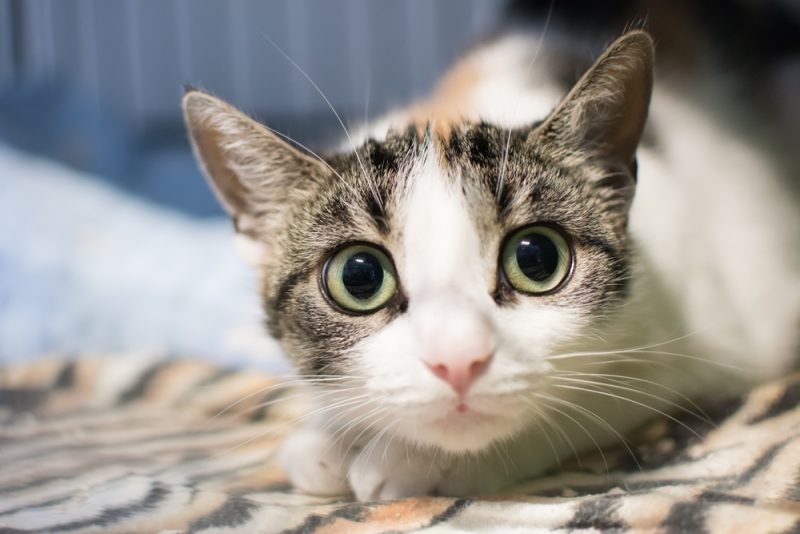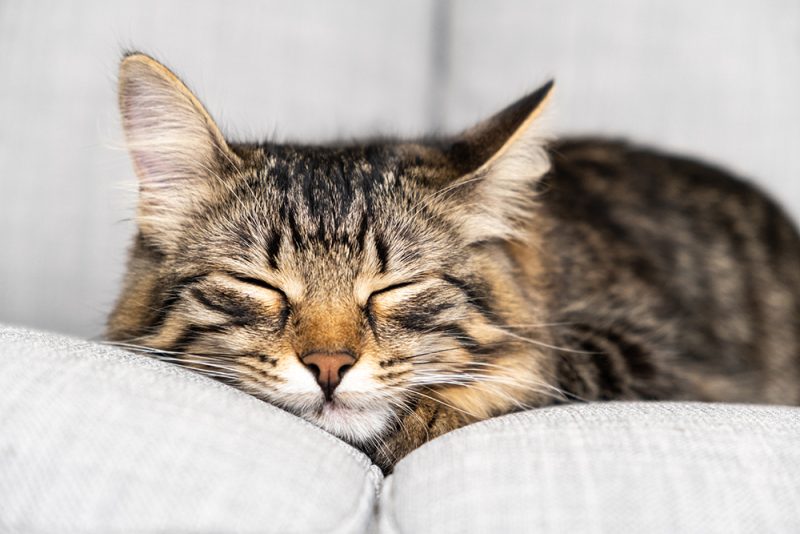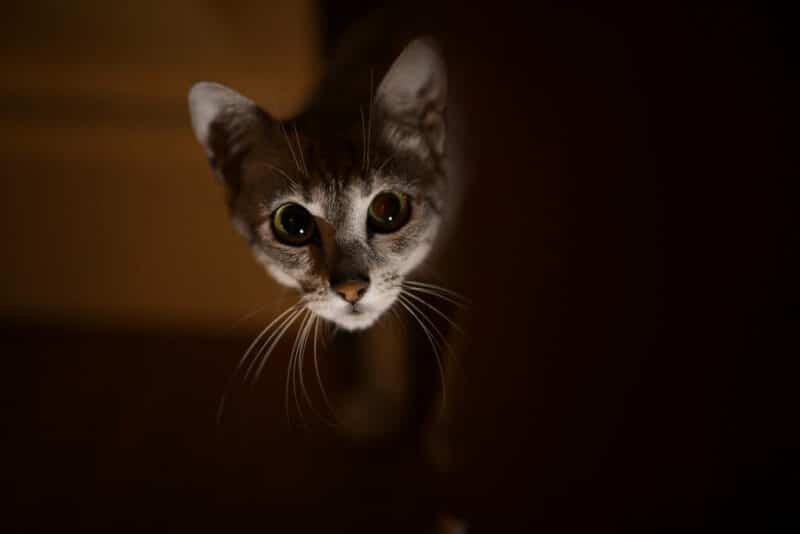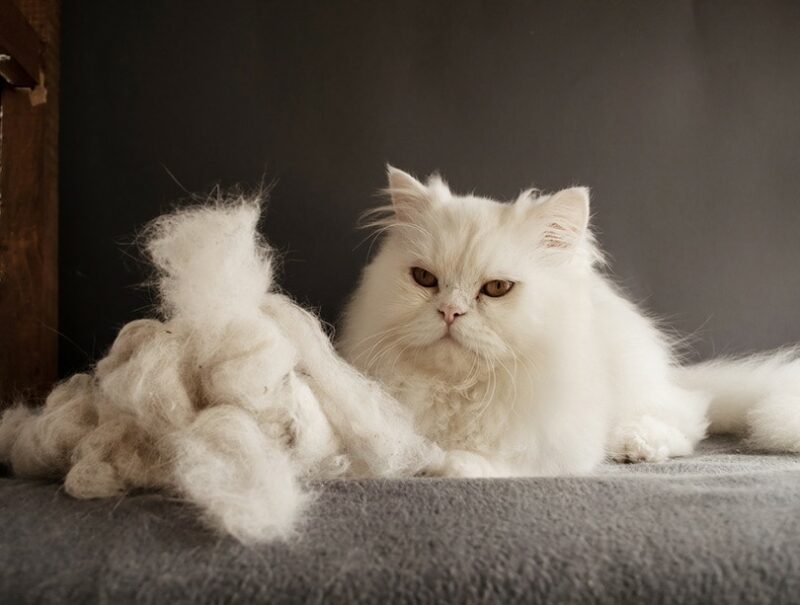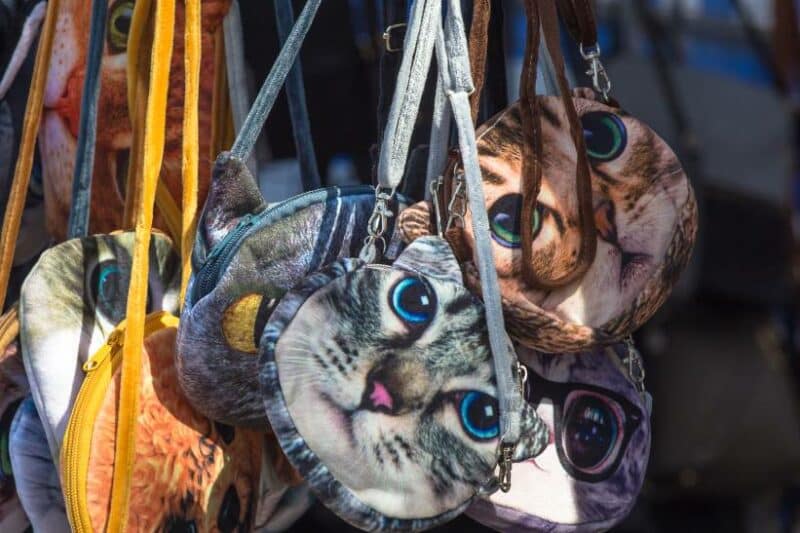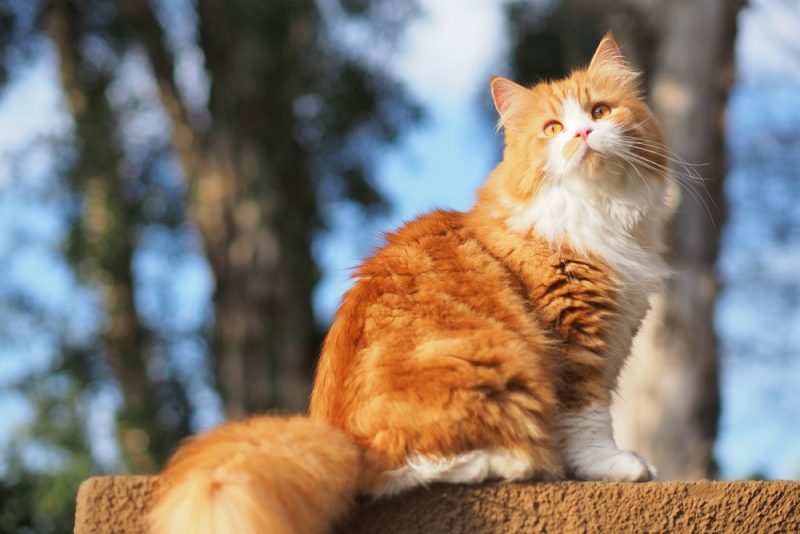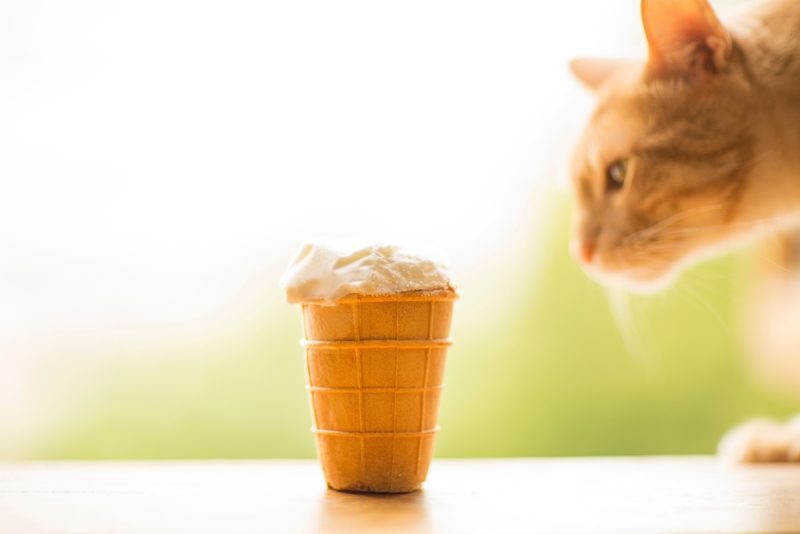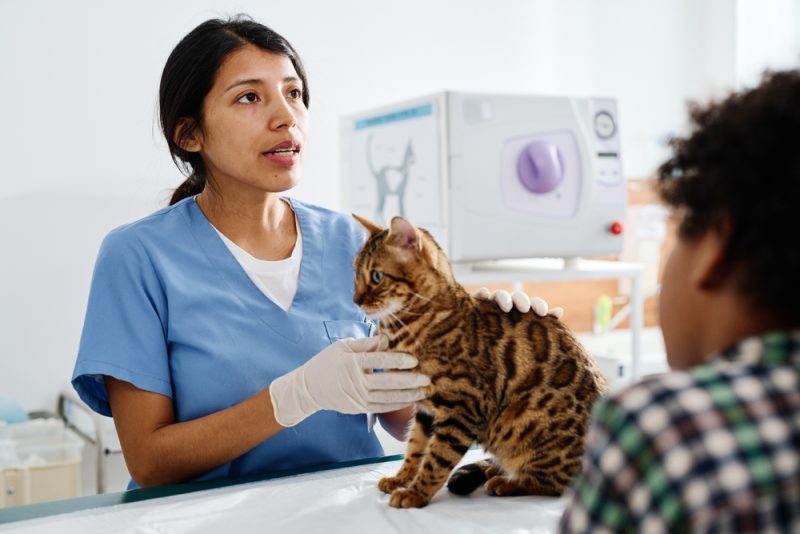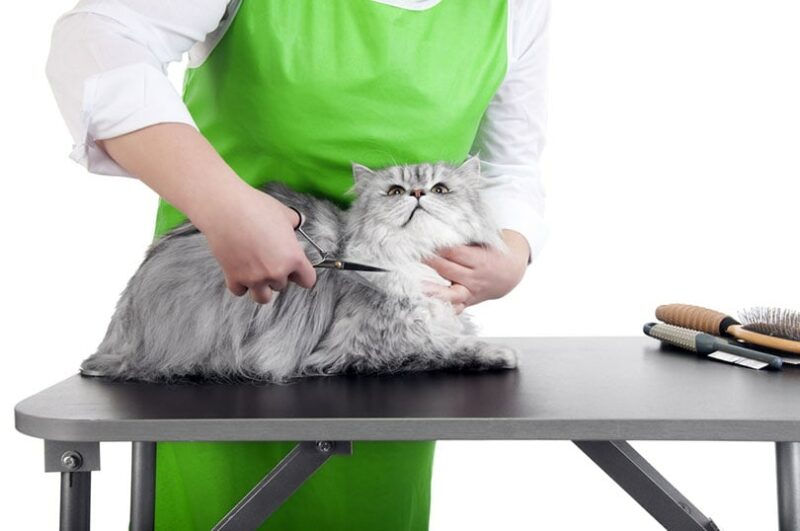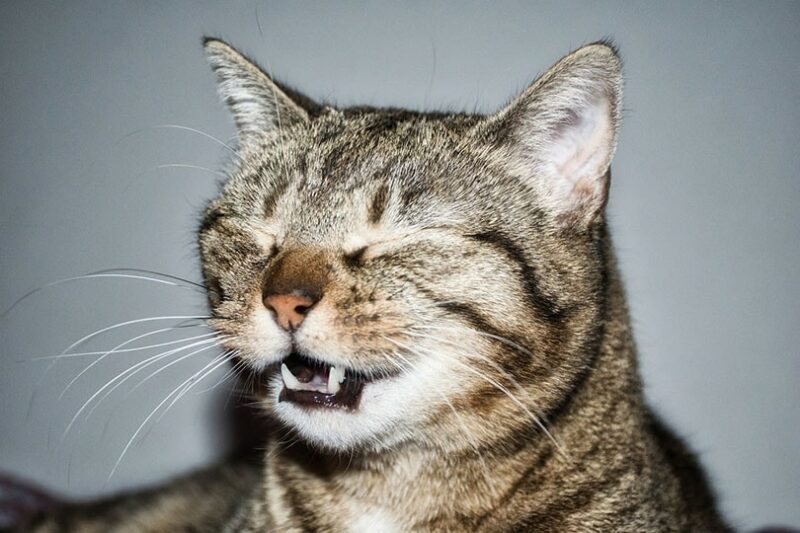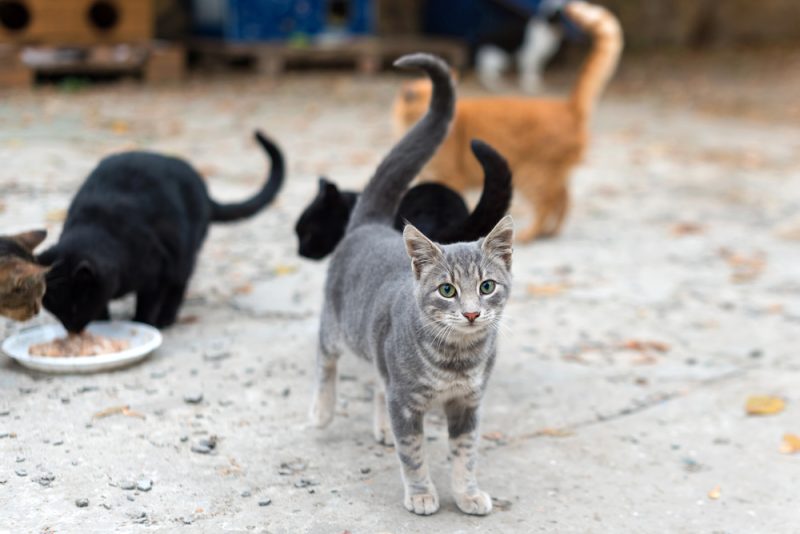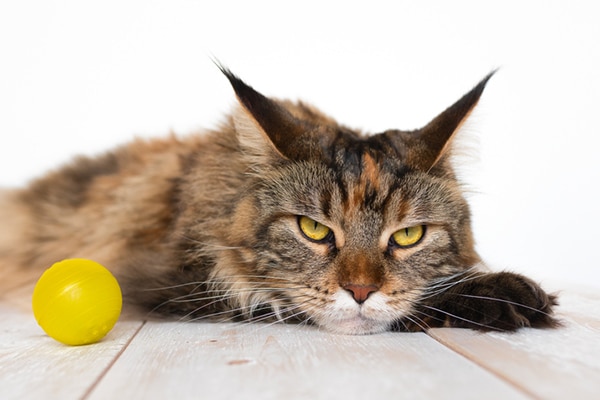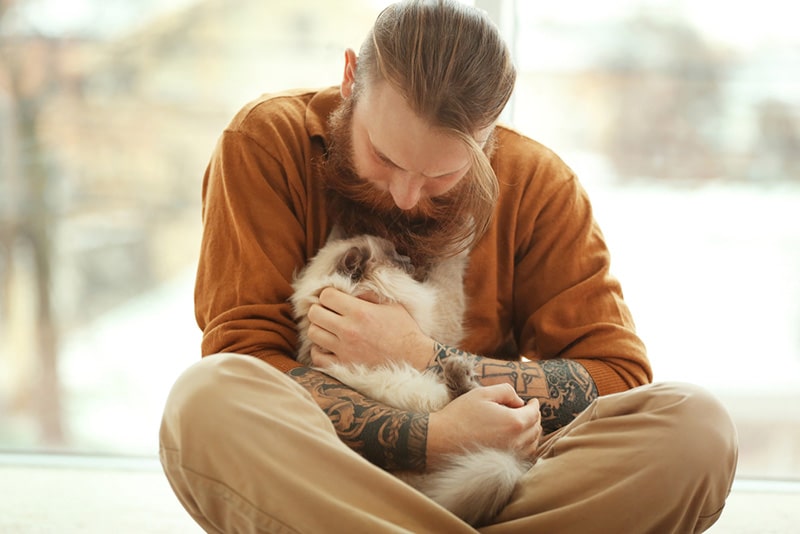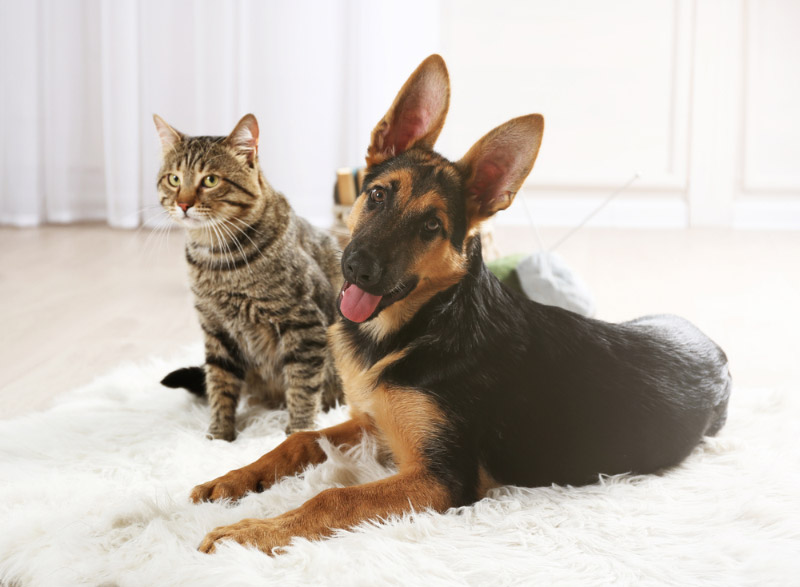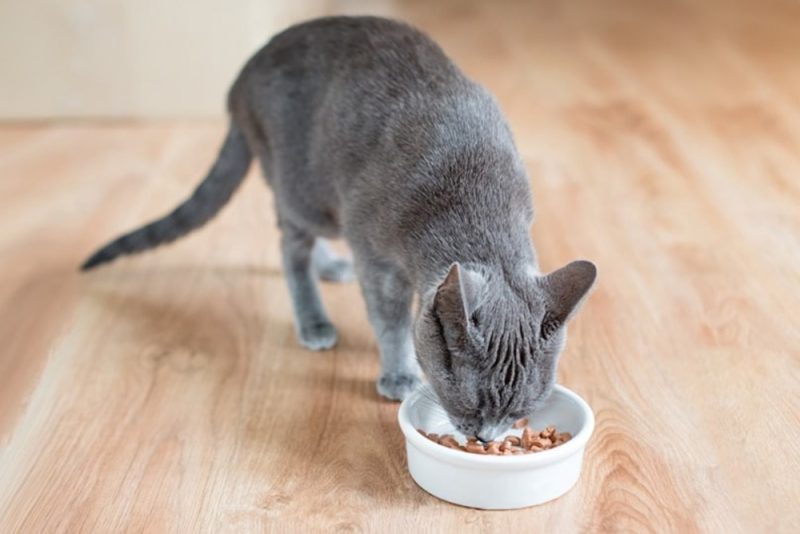Your cat’s eyes are not only pretty but also amazingly complex. Unfortunately, they can be fragile, too, and need to be taken care of. So, if your cat’s eye is watering, you shouldn’t ignore it. Why? Because runny eyes in cats can be the first sign that your feline has an eye problem, and you should seek veterinary care.
Cats’ eyes make tears constantly. Tears protect the eyes from damage and keep the surface of the eye wet. So, it is normal for the front of your cat’s eyes to look shiny but not too watery. The eyes don’t just make tears but drain them, too, so they don’t flow down your cat’s cheeks. If your cat has runny or watery eyes, they may be making more tears, or the tears are not draining normally.
So, what could be causing the problem? Unfortunately, there are many possible causes. But, by the end of this article, you’ll hopefully feel reassured that with the right veterinary treatment, your cat’s eye problem can be solved.

What Causes Weepy Eyes in Cats?
Simply put, any pain or irritation can cause your cat’s eyes to water. A cat with painful or irritated eyes might also rub them with a paw or keep them closed altogether. If you can, you should stop your cat from scratching or rubbing his eyes, which could make things worse.
One or both of your cat’s eyes might be affected by any of these common causes of runny eyes:
- Eye infections
- Trauma to the eye
- Debris in the eye
- Allergies
- Lumps and bumps
- Breed-related
Eye conditions are often linked, and your cat may be suffering from several of these problems at the same time.
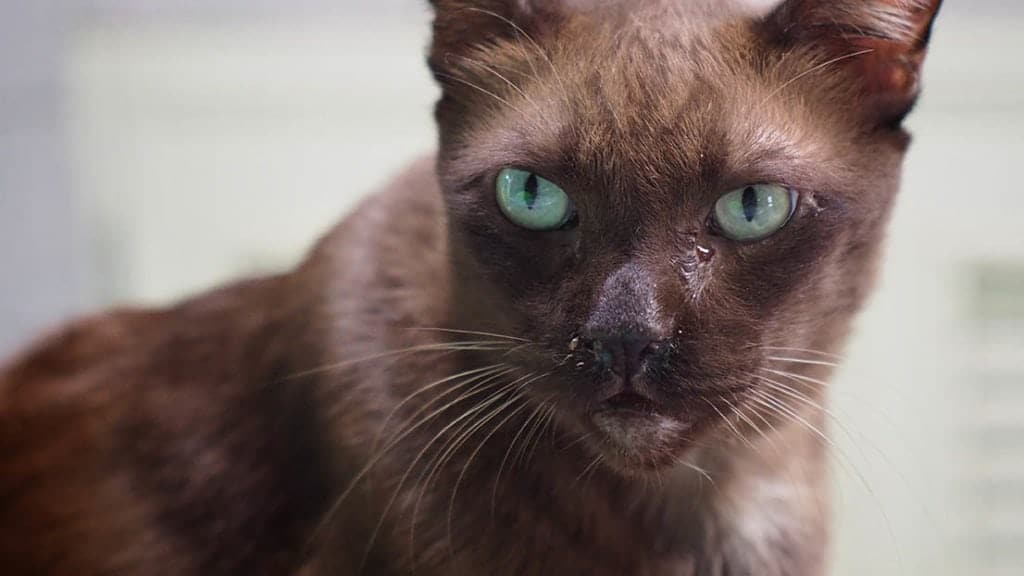
1. Eye Infections
An eye infection is one of the most common reasons why your cat has watery eyes. Infections cause conjunctivitis, which is really uncomfortable for your cat. Besides runny eyes, cats with conjunctivitis often have red and swollen eyes. Your cat can get conjunctivitis at any age, but the symptoms can be worse in young cats and kittens.
Infections can become worse if not treated. Watery discharge becomes thick, green or yellow, sticky, and the eyes dry out. This can cause damage to your cat’s eyes. In the worst-case scenario, your cat can become blind.
Conjunctivitis can also be the first sign of cat flu. Cat flu can make your cat feel pretty awful and not their usual happy selves. The symptoms of cat flu are sneezing, runny eyes and nose, a high temperature, poor appetite, and lethargy. Adult cats that are usually healthy will often get over cat flu without treatment. Kittens can become very poorly, so you should speak to your veterinarian if you have a kitten that you think might have cat flu.
If you need to speak with a vet but can't get to one, head over to PangoVet. It's an online service where you can talk to a vet online and get the advice you need for your pet — all at an affordable price!

2. Trauma
Eye injuries in cats are common but can be serious depending on what is causing them. Twigs, thorns, cat claws, or chemicals are just some of the hazards our cats’ eyes often encounter. Cats suffering traumatic injuries to their eyes will often have intense pain. They may not want to open their eyes, especially if the injury is deep. The affected eye will usually water, even if there is only minor trauma.
The front of your cat’s eye, the cornea, is where damage most frequently occurs due to trauma. Damage to the cornea is called corneal ulceration. Even if your cat has their eye open, scratches or ulcers on the cornea are extremely difficult to see with the naked eye. Your cat will need to see a veterinarian who can place a special dye into your cat’s eyes, turning their tears green. Apart from making them look a little freaky, the dye will stick to areas of the cornea that are damaged.
Unfortunately, cats with traumatic eye injuries often have the worst outcomes. The eyeball is filled with fluid that sits behind the thin, soft cornea. In the worst cases, deep wounds or ulcers can break through the cornea’s entire depth, called corneal perforation. If this happens, fluid leaks from inside the eyeball, which can mimic watery or teary eyes. This is an emergency, and your cat will need to see a veterinarian as soon as possible.
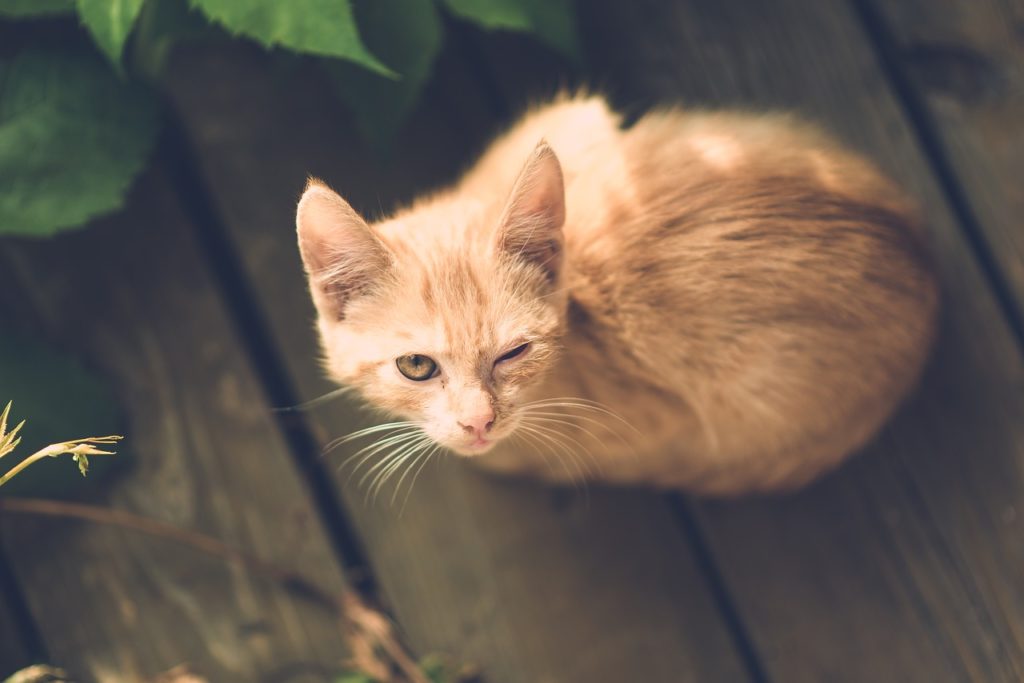
3. Debris
We all know how it feels to have even a tiny speck of dust in our eye, and cats are no different in that respect. Small particles of dust or fluff will irritate your cat’s eyes and make them water, but they should get better quickly without intervention. But if your cat’s eyes continue to be runny, it may be a sign that something much bigger is bothering them.
Unfortunately for cats, debris is pretty good at hiding itself in various places around their eyes. Cats have a third eyelid that isn’t visible most of the time, as it sits at the inside corner of their eyes. Debris and foreign bodies can often get stuck under here, as well as underneath the eyelids. Sometimes the only symptoms are a watery eye, swelling, or a visible third eyelid that appears pink and fleshy.
Without specialist veterinary equipment, it can be impossible to identify hidden debris in your cat’s eye. If left, this can cause trauma and infection to the rest of the eye.
4. Allergies
Cats can have allergies to anything in their environment, like pollen, food, or detergents. Symptoms are often mild and include watery eyes, just like in humans. Your cat’s eyes may appear slightly red or swollen but usually get better on their own once the cause of the reaction is removed. Some cats, however, may have more severe signs such as intense itching, lumpy skin, or more obvious swelling, usually around the eyes or face. You should get your cat veterinary attention if they have these signs.
Similar to allergies, vapors produced by certain household products can also make your cat’s eyes runny. Common eye irritants for cats are household cleaners, air fresheners, aromatherapy, or essential oils. As well as having watery eyes, your cat can have breathing difficulties. So avoid using these products when your cat is nearby.
Finally, some cat spot-on parasite preparations will make your cat’s eyes water. Unless the reaction is severe, there is usually nothing to worry about. Their eyes will return to normal without treatment. If you are concerned about your cat after applying spot-on treatment, wash the product off with warm water and call your veterinarian.
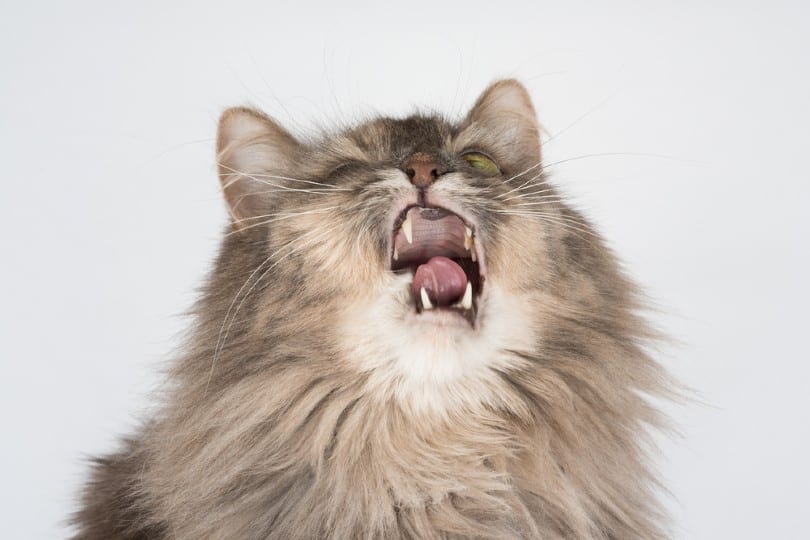
5. Lumps & Bumps
Your cat can develop lumps and bumps anywhere in or around the eye. This is more common as they get older. Not all growths are cancerous, but they should all be checked out by your veterinarian. Eyelid swellings or growths can rub across the eye’s surface, which will irritate it over time and can cause damage to the delicate cornea.
Abnormal growths can also occur inside your cat’s eyeball, causing it to get bigger. This can cause glaucoma, which is where the pressure inside the eye increases. Pain and swelling will make your cat’s eye water. You might also notice other eye abnormalities like color change, clouding, bulging, or in the worst case, blindness in the affected eye.
Runny eyes in cats are more common in some breeds, such as Persians, because of the shape of their skull. Persians’ short noses mean that most of their tears run over the top of the lower lid and down their face, causing the fur to stain pink or brown.
Persians and Maine Coons can suffer more frequently from another painful condition, called entropion. The lower eyelids roll inwards so that the haired skin rubs across the surface of the eye. This causes irritation and the affected eyes will produce more tears as protection. If not treated, entropion damages the eye. Other breeds can also suffer from entropion, but this is usually due to ongoing inflammation around an eye with conjunctivitis or corneal ulcers that are not treated.

How Are Runny, Watery Eyes Treated in Cats?
Treatment for runny, watery eyes can be separated into medical or surgical depending on the cause. Sometimes your cat may need both. Usually, your cat will need any of the following treatments:
- Antibiotics
- Pain relief
- Flushing or cleaning the eye
- Surgery
If your cat’s eye condition is challenging, they may need to be referred to a specialist veterinary ophthalmologist. Having good pet insurance to cover specialist care fees will give you peace of mind if this happens.
Once your cat is receiving treatment, they may need several check-ups to ensure the treatment is working.
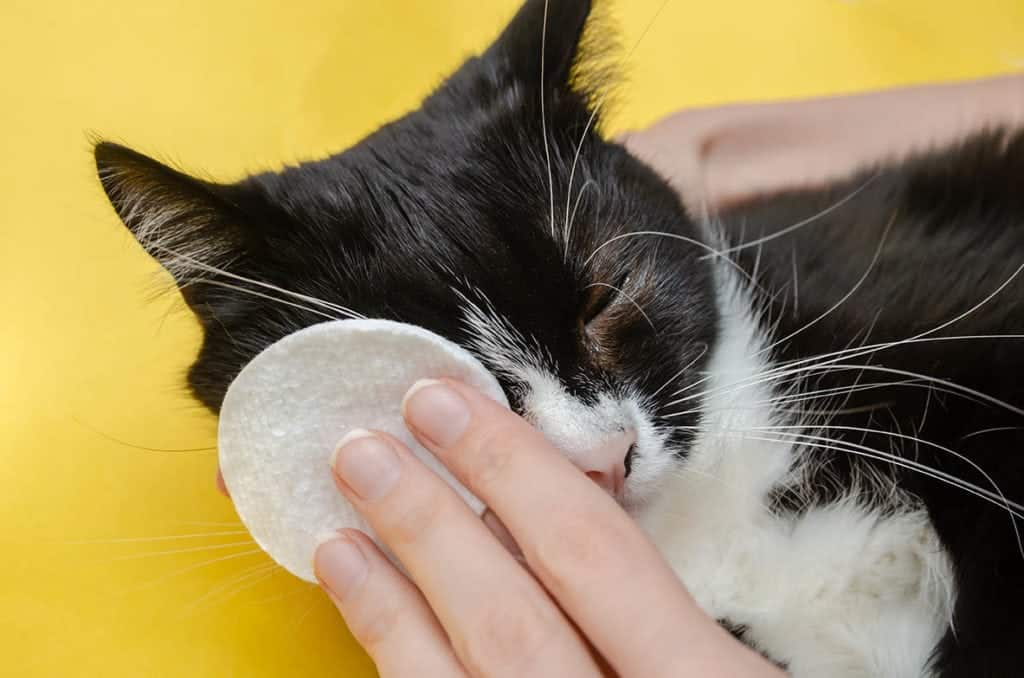
Antibiotics
If your cat’s eyes have an infection or are at risk of getting infected, they will receive antibiotic eye drops. Usually, cats with conjunctivitis, corneal ulcers, eye injuries, or cats having surgery on their eye will need antibiotics. Bacterial infections usually clear up with antibiotic drops. If not, a swab may be taken of the eye to identify if a different treatment is needed. Small corneal ulcers that do not get infected should heal within one week.
Pain Relief
Most causes of watery eyes in cats will cause some discomfort or pain, including infection, injuries, foreign bodies, and allergies. So, to ensure your cat is pain-free, your veterinarian may prescribe them pain relief. Your cat may be given this as eye drops or a liquid anti-inflammatory that is put into their food. This medication is excellent for most eye pain. Some cats may need more potent pain relief if the condition is severe. If your cat is receiving treatment for an eye issue and you think they are still in pain, speak to your veterinarian.
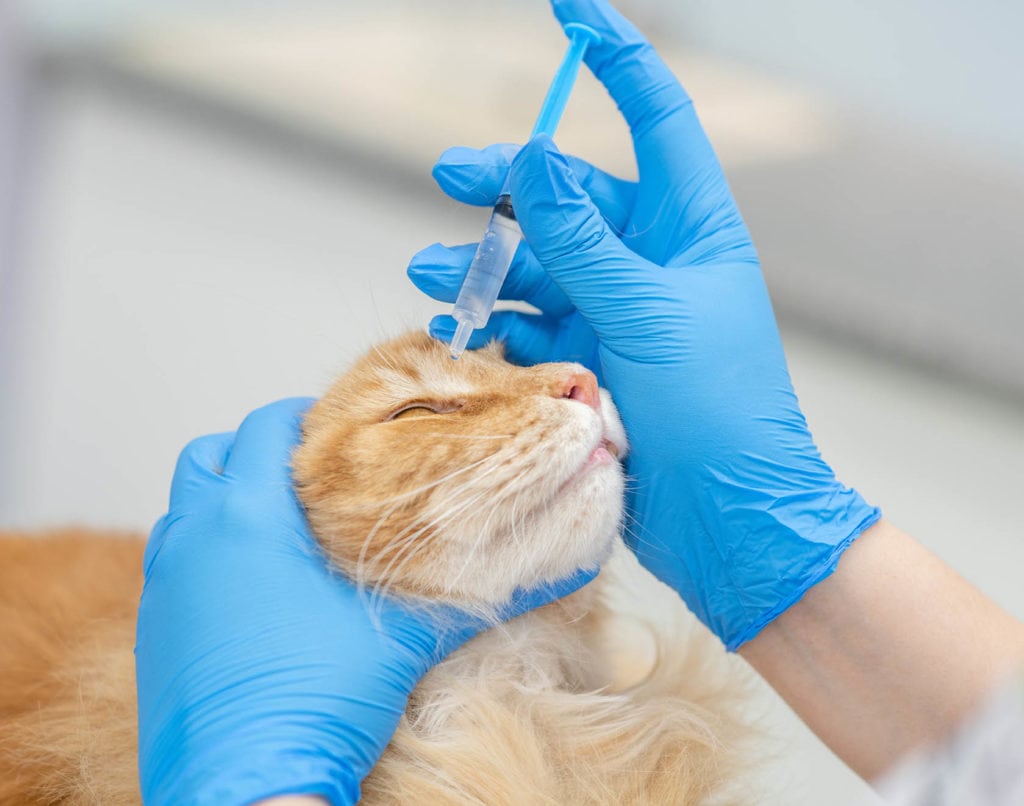
Flushing or Cleaning the Eye
Your cat will probably need this treatment if they have an eye injury, infection, debris, or a foreign body stuck in their eye. Sometimes this needs to be done under sedation or anesthetic if they are painful or anxious.
Other reasons for cleaning your cat’s eyes include overflowing tears, such as in Persians. Keeping the eyes and the skin around the eyes clean helps prevent eye and skin infections. Bathe them daily with cool boiled water and then pat dry. This will help remove any residue that builds up around your cat’s eyes. No other treatment is required for this condition.
- Gentle Care For All Pets - Infused with moisturizing hypoallergenic ingredients & enriched with...
- Deep Cleans From Head to Tail - Tackle the toughest dirt & messes with our extra strong pet wipes...
- Freshness On The Go - Each dog grooming wipes pack contains 30 counts of premium dog wipes that...
Cleaning your cat's sensitive areas can be tricky, but high-quality wet wipes can make it much easier. Try a natural, hypoallergenic option like Hepper's Wash Wipes, made with moisturizing ingredients and specifically designed to gently clean your cat's skin and fur. These wipes are as convenient as they are effective!
At Catster, we’ve admired Hepper for many years and decided to take a controlling ownership interest so that we could benefit from the outstanding designs of this cool cat company!Finally, cats that have a problem with overflowing tears because of inflammation or infection will have the drainage area flushed to clear any blockage.
Surgery to the Eye
Your cat may need surgery on their poorly eye, which is done under anesthetic. Traumatic injuries to the eye, including corneal ulcers, can require surgery to encourage healing or repair damage. Your cat may also have surgery if they have a growth on their eyelid or if their eyelid is turning inwards.
Unfortunately, if your cat’s eye problem is severe, they may need surgery to remove their eye. This might be because of trauma, a deep or non-healing corneal ulcer, or pain in the eye that doesn’t respond to treatment. You might feel alarmed at the thought of this, but cats do amazingly well with only one eye, and even no eyes, and can still play and interact as usual with you.

Is There Anything I Can Do if My Cat Has Runny, Watery Eyes?
Because your cat’s eyes are so delicate, you will need to be very careful when touching them if you think there is a problem. You should call your veterinarian for advice if you can.
Do not touch your cat’s eyes without prior veterinary advice if your cat has any of the following:
- Squinting, rubbing the eyes, or holding them shut
- Red or swollen eyes
- Obvious pain
- Cloudy eyes
- Green or yellow discharge
- Abnormal eye shape or size
- Visible third eyelid
If your cat is well and doesn’t have any of the above symptoms, you can clean the affected eye or eyes with cool boiled water and a soft cotton pad. Don’t use the same pad for both eyes because if there is an infection, you could spread it.
Your cat’s runny, watery eyes might get better on their own if they are caused by something minor like an allergy or a slight irritant. But do not wait for more than 24 hours without seeking veterinary advice if their symptoms persist. Waiting for signs to develop could cost your cat their sight. If a simple watery eye starts to look different, you should always take them to your veterinarian.

Conclusion
Runny, watery eyes can be caused by allergies, irritants, and diseases. Whilst some cases are simple and don’t require treatment, others need eye drops or more serious intervention. Eyes are important, and they can get worse quickly, so you should always contact your vet if you aren’t sure whether your cat’s runny eyes need care.
Featured Image Credit: Paulina Grzybowska, Shutterstock
